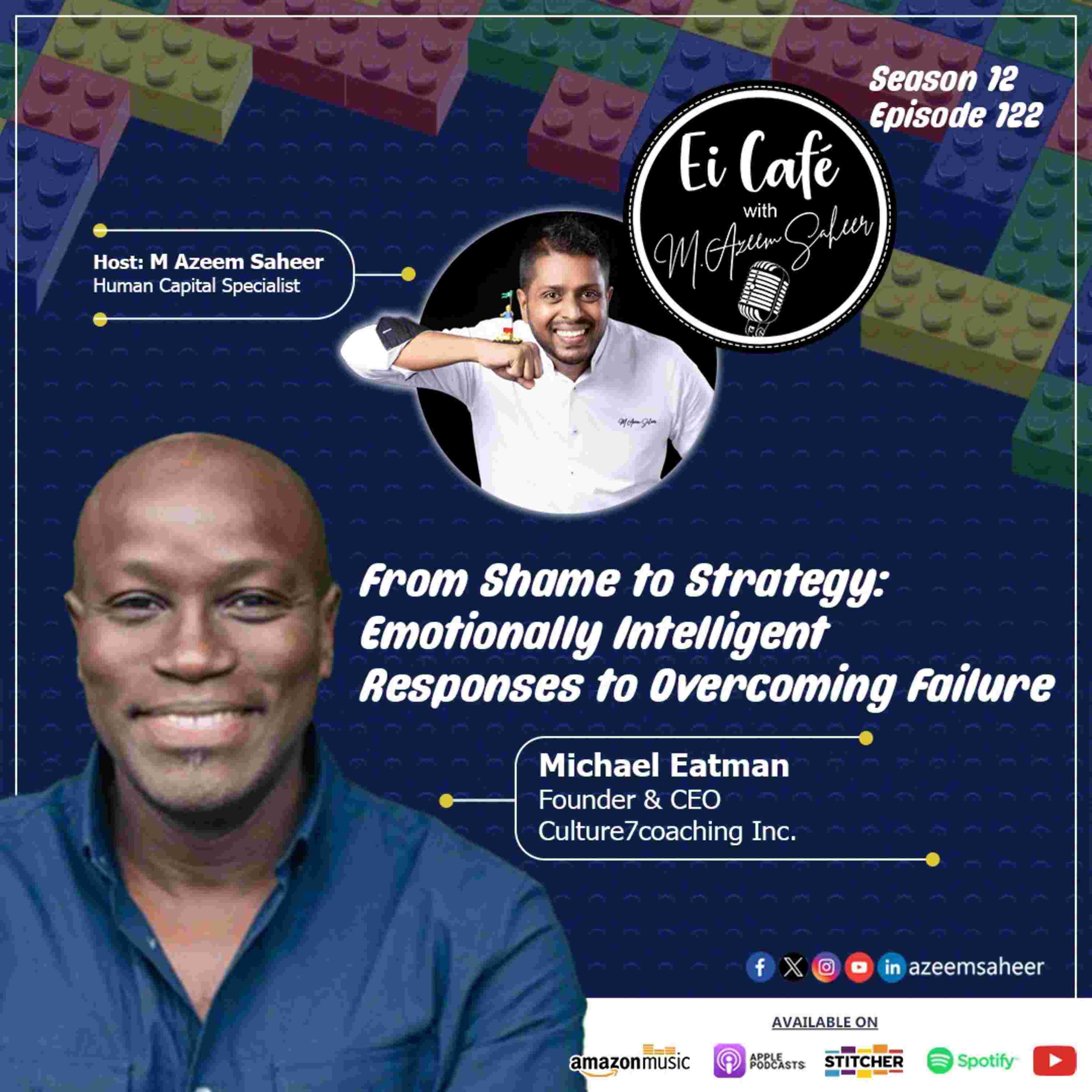

Why does failure still feel so personal—and so painful—even in progressive workplaces that claim to embrace learning?In this heart-centered conversation, Michael joins me to uncover the emotional roots of failure—and more importantly, how we can transform our response to it. Drawing deeply from his lived experience and professional insight, he shares strategies to move from shame to strategy through the lens of Emotional Intelligence.
Key Takeaways & Highlights
1️⃣ Failure is encoded as a threat from childhood. EI helps us decode it.Michael explains how our earliest experiences taught us to associate failure with danger—triggering emotional responses that often linger into adulthood. EI helps us pause, reflect, and respond rather than react with fear or shame.
2️⃣ Shame is the emotional barrier to growth. Compassion is the key to unlocking it. Shame often leads us to hide, self-criticize, or disengage. Through emotional intelligence, particularly self-awareness and self-compassion, leaders can transform shame into learning.
3️⃣ The Six Seconds Model: Know, Choose, GiveMichael introduces this practical EI framework:Know: Identify emotions and patternsChoose: Create space between stimulus and responseGive: Contribute with intention and authenticityThis empowers individuals and teams to approach failure constructively.
4️⃣ AOD – Awareness, Options, DirectionA simple yet powerful tool to shift from reaction to intention:Awareness of emotional triggersExploring Options rather than defaulting to guiltChoosing a Direction that supports growth and resilience
5️⃣ Culture vs. Climate: Both must align to support learning from failureMichael emphasizes the need to differentiate between:Culture: What the organization says it valuesClimate: What people actually experience dailyTrue psychological safety requires aligning both—especially in how failure is treated.
6️⃣ Language shapes belonging: Stop "hiring," start "welcoming"Even language can shape whether people feel like outsiders or belong. Michael encourages organizations to rethink HR language and rituals to foster true inclusion and psychological safety.
7️⃣ Redefining failure: A functional, not personal, view“Failure is a state of being unable to perform a function. It’s not who you are—it’s what didn’t work.”This definition repositions failure as part of the process—not a personal flaw—and invites a mindset of curiosity over criticism.
Meet the Guest – Michael Eatman is a Master Certified Coach (ICF), Advanced EQ Practitioner, and seasoned Leadership Strategist, with more than 32 years of experience across PreK–20 education systems. A transformative voice in emotional intelligence and cultural awareness, Michael empowers leaders to build collaborative, emotionally intelligent organizations grounded in vision, compassion, and cultural intelligence.He is also the author of Ode to Failure—a powerful and personal book that challenges us to reimagine failure not as a setback, but as a gateway to self-discovery, growth, and collective healing.
📘 Grab a copy of Michael’s book: Ode to Failure – a bold and healing invitation to reimagine our relationship with setbacks.🤝 Connect with Michael Eatman on LinkedIn